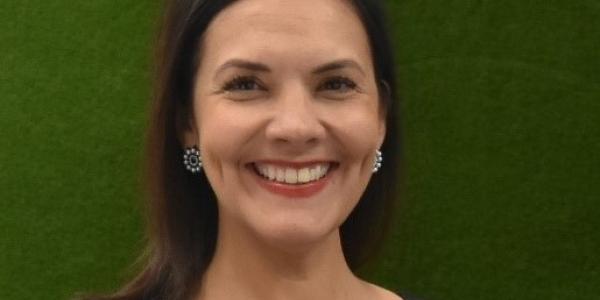From Our President. Creating NAEYC Position Statements: Your Voice Matters

You are here
A hallmark of NAEYC is its members. Being a professional membership organization, NAEYC centers the voices and experiences of its 60,000-plus members who educate and care for young children daily and in a wide variety of settings. I am struck by the strength and courage of all early childhood professionals who share their lived experiences, their successes, and the significant challenges they face through advocacy and other activities—knowing that their voices matter and that positive change can happen.
There are many complex and often controversial issues related to early childhood education practice, policy, and professional development. Taking a position on any of these issues requires deep knowledge, vision, and conviction. While it does not necessarily mean that everyone thinks the same way about an issue, taking a position is crucial for advancing the profession and for having a shared language. It provides a frame of reference for everyone concerned about and involved in providing high-quality education to all children and families.
Reflecting its mission and grounded in current theory and research, NAEYC uses position statements as a tool to foster understanding and to generate focus and support for central issues in the field.
Reflecting its mission and grounded in current theory and research, NAEYC uses position statements as a tool to foster understanding and to generate focus and support for central issues in the field. Position statements are developed and revised through a consensus-building approach, one that depends on gathering diverse perspectives and areas of expertise. It is essential to invite, collect, and be responsive to input and feedback from NAEYC members and others who engage in the daily work of early childhood education. Indeed, position statements must be grounded in both the latest research-based understandings and the wisdom and lived experiences of practitioners.
As I write this column, efforts are underway related to two NAEYC position statements—the “Code of Ethical Conduct” and the “Early Learning Program Standards.” NAEYC needs your voice and your expertise to shape these documents. Along with describing the steps involved, I want to underscore the specific ways you can participate in the process.
Last updated in 2011, the NAEYC “Code of Ethical Conduct” was approved for revision by the Governing Board in November 2022. Since then, NAEYC has assembled a diverse group of subject matter experts to participate in a work group. The work group meets regularly, and gathering input from the field is a cornerstone of this effort. For example, the work group has sought feedback through sessions at multiple NAEYC conferences and a field survey. Across these venues, participants have been asked to share their hopes and fears for the revision process, current ethical challenges they face, and how NAEYC can support them as they navigate ethical situations.
Because feedback is instrumental to constructing the position statement and preparing related professional resources, more opportunities to offer input are coming: the Code’s work group anticipates making the draft revised position statement available for public comment by early summer 2024, and the work group may provide other opportunities for public comment after revisions. We need you and other early childhood professionals to lend your voice and expertise before the official release by summer 2025.
In addition, feedback is needed on the “Early Learning Program Standards” position statement, which was last updated in 2005 and approved for revision by the Governing Board in November 2022. Following similar steps as the Code’s revisions, NAEYC has gathered a diverse group of experts to participate, and their work on this position statement coincides with NAEYC’s re-envisioning of early learning program accreditation. Especially important to this initiative will be to ensure that it stands in alignment with NAEYC’s other foundational documents, such as the statement on developmentally appropriate practice. This spring, a draft of the revised standards will be released for public comment, and NAEYC will seek feedback from its members and other early childhood professionals. The work group expects to release a revised statement by fall 2024.
You, the members of NAEYC, play a critical role in the development and revisions of these foundational documents for the organization and for the field. I encourage you to engage in this process by sharing your experiences, knowledge, and viewpoint on both of these complex and significant issues in early childhood education. Your voice matters and will help lead to positive change.
Copyright © 2024 by the National Association for the Education of Young Children. See Permissions and Reprints online at NAEYC.org/resources/permissions.
Natalie Vega O'Neil is president of the National Association for the Education of Young Children.
